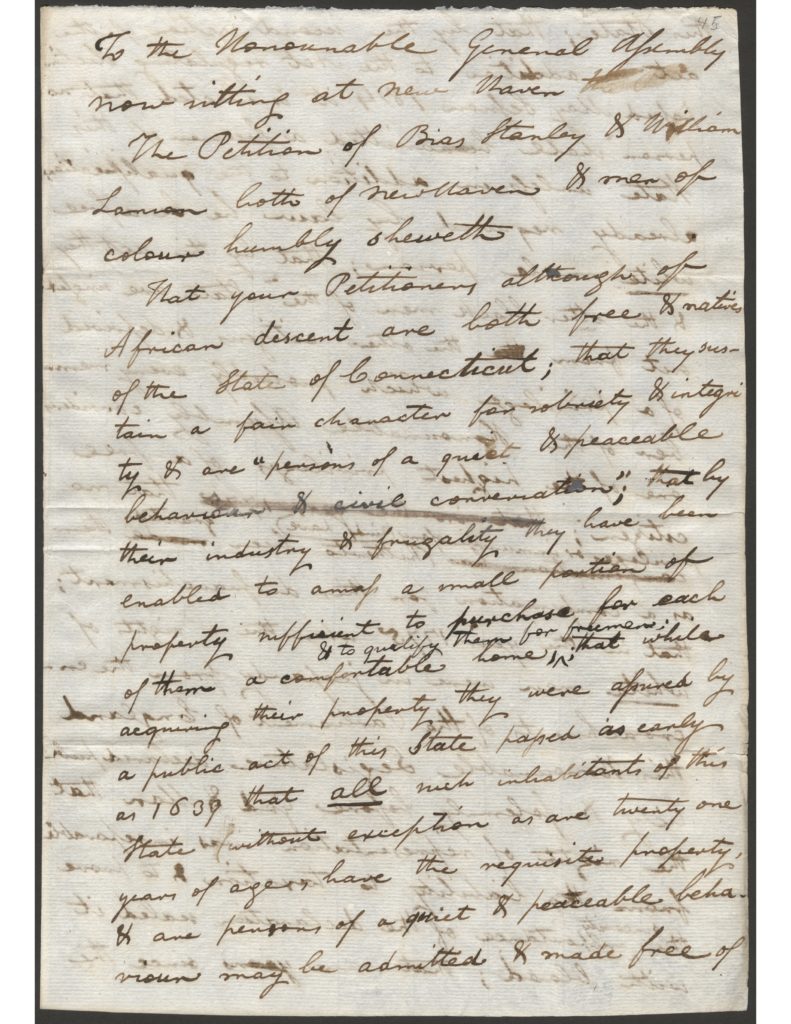In 1784, Connecticut passed a Gradual Emancipation Act that ended hereditary enslavement for African Americans in the state. The act required freeing, at the age of 25, those born into slavery after March 1, 1784. More than half a century later, the state mandated the elimination of slavery altogether, but freedom did not equate to being granted the full rights of citizenship for Connecticut’s African Americans. Despite being allowed to purchase property and pursue an education, they were still denied the right to vote.
Between the elections of 1812 and the new state constitution of 1818, Connecticut enacted laws that restricted voting to white adult males. Petitions protesting these restrictions flooded the state General Assembly, but all were summarily rejected. In response, many African Americans began refusing to pay taxes (on the grounds that their ineligibility to vote made them exempt).
In 1870, the state ratified the 15th Amendment which stated that no one could be denied the opportunity to vote based on their race or previous servitude. Still, poll taxes, grandfather clauses, and other means of disenfranchising African Americans remained in place. It wasn’t until 1965, with the passage of the federal Voting Rights Act, that many of these restrictive measures were legally abolished.
To learn more about the battles over African American suffrage in Connecticut, read Katherine J. Harris’s article, “‘No Taxation without Representation’: Black Voting in Connecticut“ in Connecticut Explored magazine. Also, check out the Fall 2018 issue for more on the state’s battles over black suffrage.
© Connecticut Explored. All rights reserved.
Note: ConnecticutHistory.org does not edit content originally published on another platform and therefore does not update any instances of outdated content or language.









